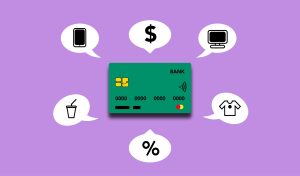Leveraging Business Credit Versus Personal Credit
Leveraging business credit versus personal credit is a common topic for small business owners and entrepreneurs. When starting a new business or trying to grow an existing one, it’s important to understand the differences between these two forms of credit and how they can benefit or hinder your business. In this article, we will explore the advantages and disadvantages of both types of credit and provide some tips on how to effectively use them to achieve your business goals.
What is Business Credit?
Business credit, also known as trade credit, is the credit that is established in the name of a business and linked to its employer identification number (EIN) or tax identification number (TIN). This type of credit is used by businesses to purchase goods and services from suppliers on a delayed payment basis. Unlike personal credit, which is tied to an individual’s social security number, business credit is solely tied to the business and its financial history.
When a business applies for business credit, lenders will examine the company’s credit score, financial statements, and cash flow to determine its creditworthiness. Establishing a good business credit profile can help a company secure better loan terms, trade credit lines, and attract investors.
What is Personal Credit?
As the name suggests, personal credit is the credit that belongs to an individual. This credit is linked to a person’s social security number and is used to determine their creditworthiness when applying for loans, credit cards, or other financial products. Personal credit is primarily used for personal expenses and is not directly tied to a business unless the individual is a sole proprietorship.
Similar to business credit, personal credit is determined by factors such as an individual’s credit score, payment history, and debt-to-income ratio. A good personal credit score can help secure lower interest rates and better loan terms, making it easier to manage personal finances.
The Benefits of Leveraging Business Credit
One of the main benefits of using business credit is that it can help separate your personal and business finances. This can be especially helpful for business owners who are trying to establish a strong credit profile for their company. By keeping business and personal credit separate, it may be easier to track business expenses and obtain loans or credit lines in the name of the business.
Business credit can also provide more borrowing power compared to personal credit. A business with a good credit score can qualify for larger loans or credit lines, making it easier to expand operations or invest in new opportunities. Additionally, business credit may have lower interest rates and better terms compared to personal credit.
The Challenges of Leveraging Business Credit
One of the main challenges of using business credit is that it may be difficult for new businesses or startups to establish a credit history. Most business lenders will require a company to have at least one year of business operations and a strong financial history before considering them for credit. This can make it challenging for new businesses to obtain necessary funds to grow and expand.
Another challenge of using business credit is the potential for personal liability. Some lenders may require a personal guarantee from business owners, making them personally liable for the business’s debts. In case of default, this can have a negative impact on an individual’s personal credit score.
The Benefits of Leveraging Personal Credit
Personal credit can be a valuable resource for small business owners, especially in the early stages of business ownership. Without a strong business credit profile, lenders may rely on a business owner’s personal credit score to determine creditworthiness. A good personal credit score can make it easier to secure loans or credit lines for business expenses or investments.
Using personal credit may also allow business owners to obtain business credit cards, which can offer rewards, cashback, and other benefits for business-related expenses. This can be helpful for business owners looking to manage their cash flow or save on business expenses.
The Risks of Leveraging Personal Credit
Using personal credit for business expenses can also have its drawbacks. One of the main risks is the potential for damaging your personal credit score. If a business owner is unable to repay debts or make payments on time, it can negatively impact their personal credit profile and potentially hinder their future financial goals.
Additionally, using personal credit can create a blurred line between personal and business expenses, making it difficult to track and manage business finances. Mixing personal and business expenses can also create potential tax implications and make it challenging to obtain a clear understanding of the company’s financial health.
How to Effectively Leverage Business and Personal Credit
As a small business owner, it’s important to understand the benefits and challenges of both business and personal credit and use them effectively to achieve your business goals. Here are some tips to help you leverage both types of credit:
1. Establish a separate business credit profile
If you haven’t already, make sure to establish a separate business credit profile by getting an EIN or TIN and registering your business with business credit bureaus. This will help build a strong credit history for your company and make it easier to access financing in the future.
2. Use business credit for business expenses
To avoid potential confusion and legal issues, use business credit solely for business expenses. This will help maintain a clear line between personal and business finances and make it easier to track business expenses for tax purposes.
3. Monitor your credit profile
Regularly check your business and personal credit profiles to ensure they are accurate and up to date. This will help identify any potential errors or fraudulent activity that could negatively impact your credit score.
4. Make payments on time
To maintain a good credit score, it’s essential to make payments on time. This applies to both business and personal credit. Late payments can have a significant impact on your credit score and make it more challenging to secure credit in the future.
5. Seek professional advice
If you’re unsure about how to effectively manage and leverage your business and personal credit, seek advice from a financial advisor or accountant. They can help you understand your options and make the best decisions for your business’s financial health.
In Summary
Leveraging business credit versus personal credit is a balancing act for small business owners. While both forms of credit have their advantages and disadvantages, it’s important to understand how to use them effectively to achieve your business goals. By establishing a good credit profile, making payments on time, and seeking professional advice, you can effectively leverage both forms of credit and set your business up for success.









